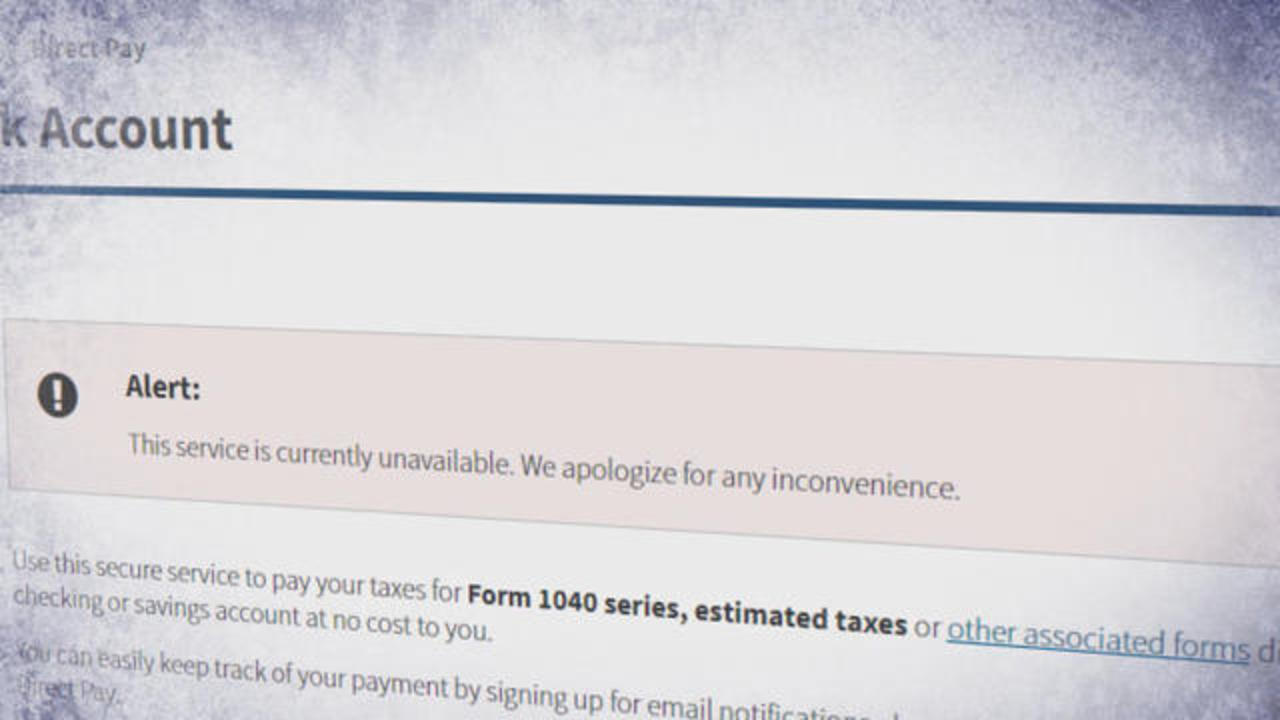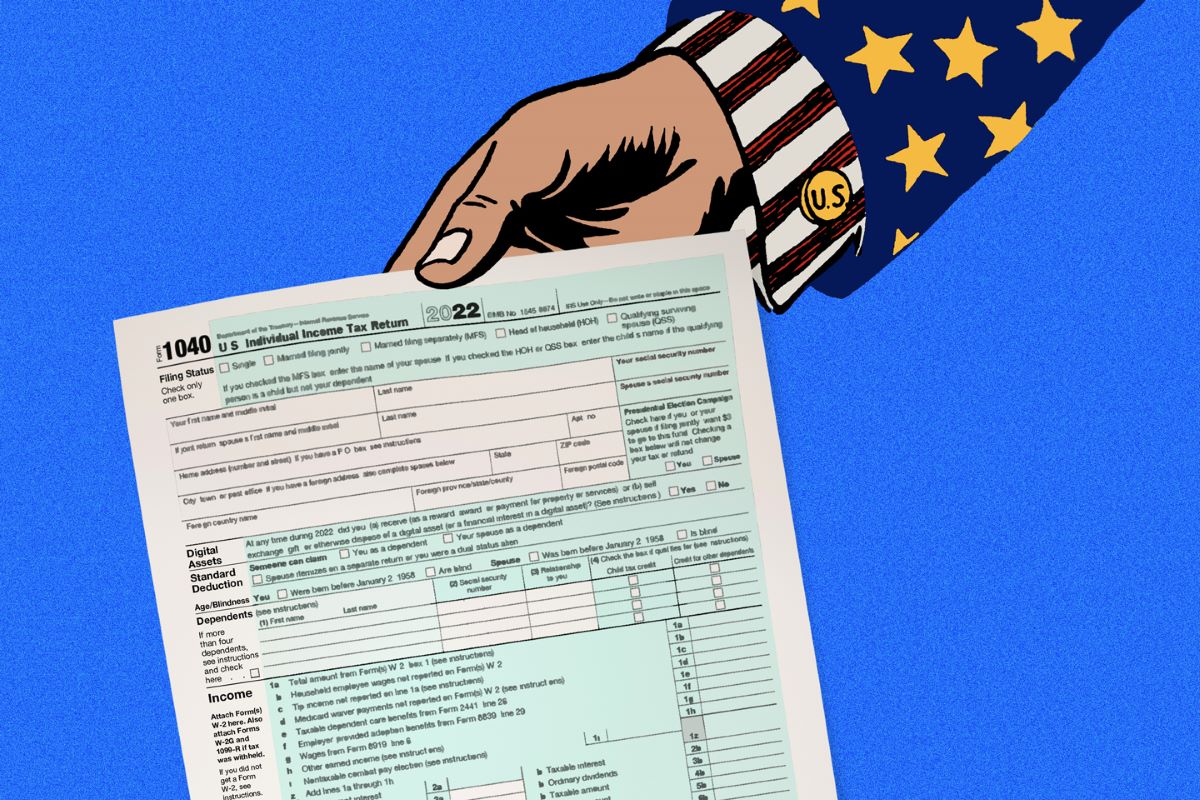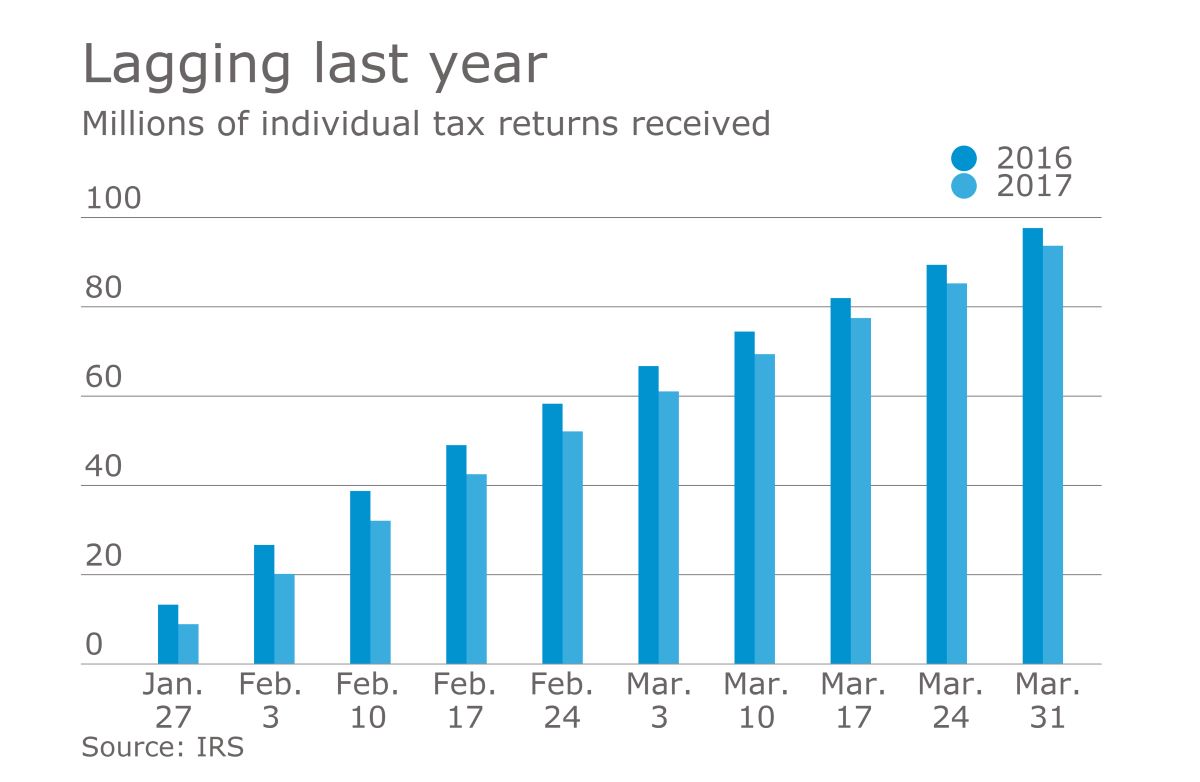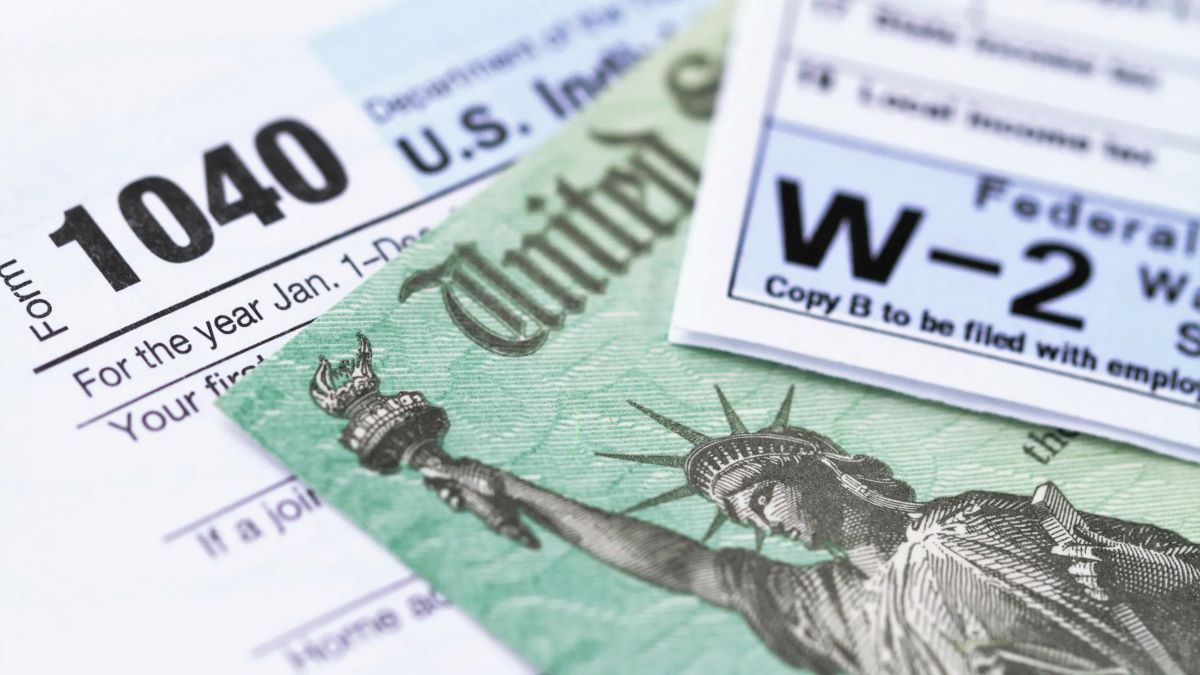Home>Finance>When Will The IRS Start Accepting Returns In 2018
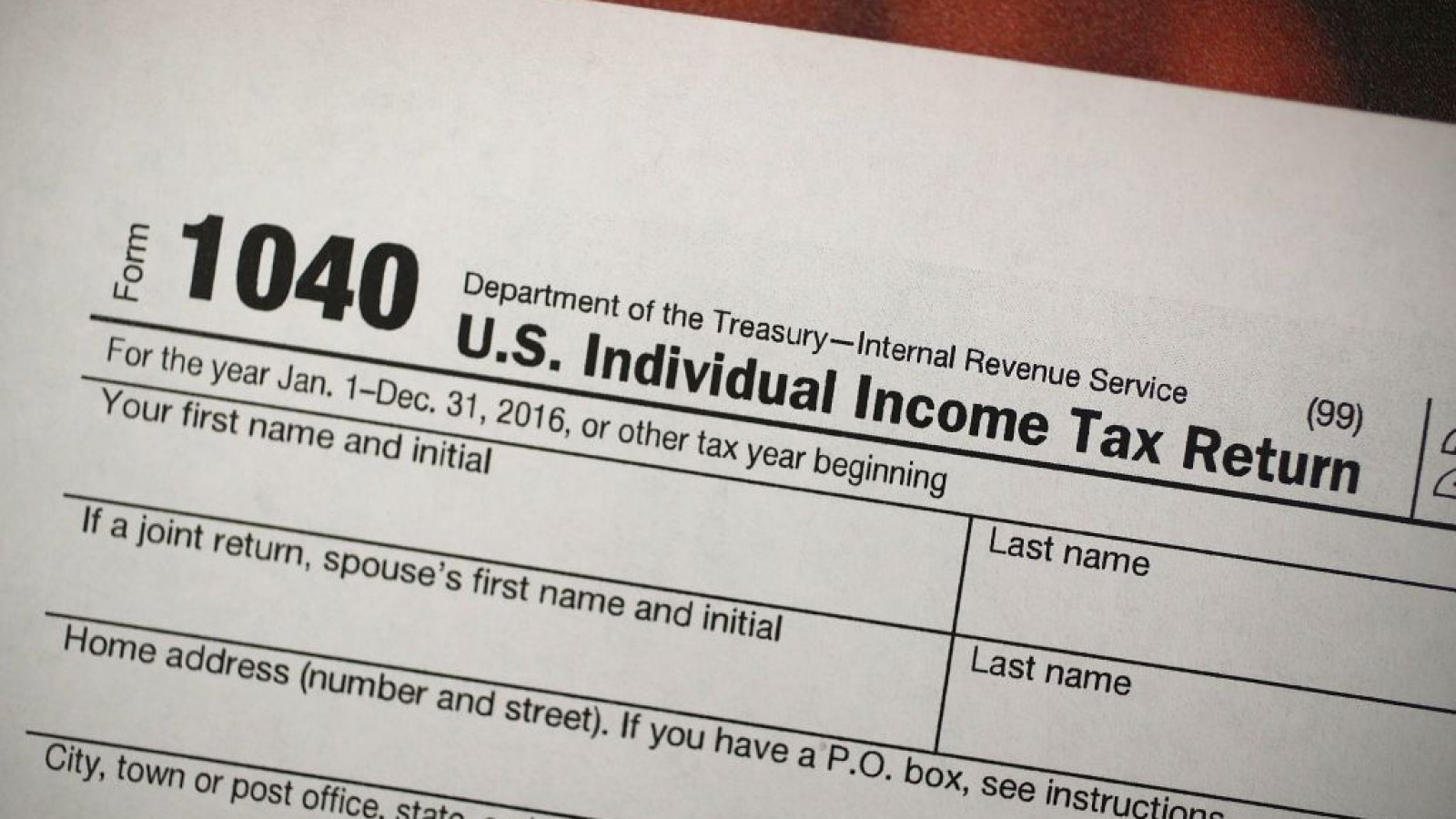

Finance
When Will The IRS Start Accepting Returns In 2018
Modified: February 21, 2024
Get ready for tax season! Find out when the IRS will start accepting returns in 2018. Stay on top of your finances with the latest updates.
(Many of the links in this article redirect to a specific reviewed product. Your purchase of these products through affiliate links helps to generate commission for LiveWell, at no extra cost. Learn more)
Table of Contents
Introduction
Welcome to tax season! As the new year rolls around, many taxpayers eagerly anticipate filing their tax returns and receiving a much-awaited refund. However, before diving into the process, it’s important to understand the changes and key dates for the upcoming tax filing season.
In previous years, taxpayers were accustomed to the Internal Revenue Service (IRS) accepting returns around mid-January. However, for the tax year 2018, there have been some important changes that taxpayers need to be aware of.
The IRS has implemented changes to tax filing deadlines in recent years to better align with the processing of certain tax forms and to combat tax fraud. These changes aim to provide the IRS with additional time to verify the accuracy of taxpayers’ claims and detect any fraudulent activity.
So, when will the IRS start accepting returns for the 2018 tax year? Let’s explore the new filing season start date and other crucial information to help you navigate through the upcoming tax season with ease.
Important Note: Please note that the following information pertains to the tax season of the 2018 tax year. It is always a good idea to consult the IRS website or a qualified tax professional for the most up-to-date information.
Changes in Tax Filing Dates for 2018
It’s crucial for taxpayers to be aware of the changes in tax filing dates for the 2018 tax year. These changes were implemented by the IRS with the goal of improving efficiency and reducing tax fraud. Here are some key changes to be mindful of:
- Form 1099 Reporting: The deadline for filing certain types of Form 1099, such as those reporting non-employee compensation, has been moved up to January 31st. This change aims to accelerate the verification process by giving the IRS access to this information earlier, helping to combat fraudulent refund claims.
- Federal Tax Return Deadline: The deadline for filing federal individual income tax returns for the 2018 tax year is April 15, 2019. If you need more time to file your return, you can request an extension; however, this will only extend the filing deadline, not the payment deadline.
- Extension Deadline: The deadline for requesting an extension to file your federal tax return is also April 15, 2019. This allows taxpayers an additional six months to file their returns. However, it is essential to remember that any taxes owed must still be paid by the original filing deadline to avoid penalties and interest.
- State Tax Return Deadline: While the federal tax return deadline remains April 15, 2019, it’s important to check with your state’s tax agency to confirm their specific filing deadlines. State filing deadlines may differ from the federal deadline, and failing to meet your state’s deadline can result in penalties and interest.
- Pass-Through Entities: In certain cases, individuals who receive income from partnerships, S corporations, and LLCs will receive Schedule K-1 forms. These forms provide detailed information about their share of the entity’s income, deductions, and credits. The deadline for K-1 forms has been moved up, so taxpayers can expect to receive these forms earlier.
These changes in tax filing dates are important to keep in mind as you prepare your tax return for the 2018 tax year. Adhering to the revised deadlines will ensure that your return is filed accurately and on time, minimizing the risk of penalties or delays in receiving your refund.
Filing Season Start Date for 2018 Returns
Now that we’ve covered the changes in tax filing dates, let’s dive into the eagerly anticipated start date for the 2018 filing season. For tax year 2018, the IRS announced that they will begin accepting tax returns on January 28, 2019.
It’s important to note that this start date is for both paper and electronic filing. However, the IRS highly encourages taxpayers to file their returns electronically, as it is the fastest and most secure method of filing. Additionally, electronic filing comes with the added benefit of faster processing and immediate confirmation of receipt.
With the start date established, taxpayers can begin gathering their tax documents, including W-2s, 1099 forms, and any other necessary income documentation. Organizing these documents ahead of time will help streamline the tax preparation process and ensure accurate reporting of income and deductions.
If you anticipate receiving all your necessary tax documentation before the start of the filing season, you can prepare your tax return using tax software or seek the assistance of a qualified tax professional. This way, you can be ready to file as soon as the IRS begins accepting returns.
While the start date for filing season is set, keep in mind that the processing time for your tax return will vary based on various factors, such as the complexity of your return and the volume of returns being processed. It’s always a good idea to check the IRS’s “Where’s My Refund?” tool for updates on the status of your return and refund.
By being aware of the filing season start date and properly preparing your tax return, you’ll be well-equipped to submit your return in a timely manner, reducing the chances of delays or errors and ensuring a smoother tax season experience.
Electronic Filing Options for Taxpayers
When it comes to filing your tax return, the IRS strongly recommends electronic filing due to its convenience, accuracy, and speed. Electronic filing options are available to taxpayers, making the process of filing your tax return easier than ever before.
There are several electronic filing options to choose from, depending on your preferences and individual tax situation:
- IRS Free File: The IRS offers a free online tax preparation and filing service called IRS Free File. This option is available to taxpayers who meet certain income limitations. Through IRS Free File, you can choose from various tax software providers and prepare your tax return online, all at no cost.
- Online Tax Software: There are numerous reputable tax software providers available that enable taxpayers to prepare and file their taxes electronically. These software programs guide you through the process step-by-step, ensuring accuracy and helping you identify all eligible deductions and credits.
- Tax Professional e-File: If you prefer the assistance of a tax professional, they can also electronically file your tax return on your behalf. Tax professionals have access to e-file services and can efficiently submit your return, providing you with the convenience and expertise you need.
- IRS Authorized e-File Providers: The IRS maintains a list of authorized e-file providers who offer electronic filing services to taxpayers. These providers adhere to strict IRS guidelines and can help you file your return electronically.
Regardless of the electronic filing method you choose, it’s important to gather all necessary documents and accurately input your information. Double-checking the accuracy of your tax return is crucial to avoid errors, which can delay processing and potentially result in additional tax liability or missed refunds.
As part of the electronic filing process, you will also have the option to receive your refund through direct deposit. Direct deposit is the fastest way to receive your refund, typically within a few weeks. It’s a secure and convenient method that eliminates the wait time associated with receiving a physical refund check.
Electronic filing offers numerous benefits, including faster processing, reduced errors, and the convenience of e-filing from the comfort of your own home. By taking advantage of these electronic filing options, you can streamline the tax filing process and ensure that your return is submitted accurately and efficiently.
Benefits of Early Tax Return Submission
Many taxpayers wait until the last minute to file their tax returns, but there are several advantages to submitting your tax return early. Here are some key benefits of early tax return submission:
- Faster Refund Processing: If you’re expecting a refund, filing your tax return early can help expedite the processing of your refund. The earlier you file, the sooner you can expect to receive your refund. This can be especially beneficial if you have plans for your refund, such as paying off debt, saving for a large purchase, or investing for the future.
- Avoiding Tax Return Backlog: As the tax filing deadline approaches, the IRS experiences a surge in tax return submissions. This backlog can lead to delays in processing and issuing refunds. By filing your return early, you can avoid the rush and ensure that your return receives prompt attention from the IRS.
- Identification of Tax Return Errors: Filing your tax return early gives you ample time to review your return for accuracy. This allows you to identify and correct any errors or missing information before submitting your return to the IRS. By catching errors early on, you can avoid potential penalties or delays in processing your return.
- Potential for Additional Deductions: By filing your tax return early, you can assess your current tax situation and identify any missed deductions or credits. This gives you the opportunity to gather any necessary supporting documentation and claim these additional deductions, potentially reducing your overall tax liability or increasing your refund amount.
- Peace of Mind: Filing your tax return early provides a sense of relief and peace of mind. You don’t have to worry about meeting the filing deadline or rushing at the last minute to gather all necessary documents. Instead, you can enjoy the satisfaction of having your tax obligations addressed early and focus on other important aspects of your financial life.
While there may be reasons to delay filing your tax return, such as waiting for additional documentation or complex financial situations, it’s generally beneficial to submit your tax return as early as possible. Early submission ensures a quicker refund, reduces the risk of errors, and allows you to take advantage of potential deductions or credits that may otherwise be missed.
Keep in mind that early tax return submission does not mean you have to file your return without careful consideration or professional assistance if needed. Take the time to review your return, consult with a tax professional if necessary, and ensure that all information is accurate before submitting it to the IRS.
By filing your tax return early, you can enjoy the benefits of a faster refund, reduced stress, and the satisfaction of taking care of your tax obligations in a timely manner.
Common Issues to Avoid
As you prepare to file your tax return, it’s important to be aware of common pitfalls and issues that can lead to errors, delays, or even penalties. By avoiding these common issues, you can ensure a smooth filing process and minimize potential complications. Here are some common issues to watch out for:
- Mathematical Errors: One of the most common mistakes on tax returns is mathematical errors. These can be as simple as incorrectly adding or subtracting numbers or making errors in calculations. To avoid this issue, always double-check your math and use tax software or an electronic filing program that automatically calculates the numbers for you.
- Incorrect Personal Information: Ensure that all personal information, such as your name, Social Security number, and address, is accurately entered on your tax return. These details should match the information on your official records and documents. Incorrect personal information can cause delays in processing your return or even trigger an audit.
- Improper Filing Status: Choosing the correct filing status is crucial, as it affects your tax liability and eligibility for certain tax benefits. Review the IRS guidelines to determine your appropriate filing status, whether it’s single, married filing jointly, married filing separately, head of household, or qualifying widow(er) with dependent child.
- Overlooking or Misreporting Income: Ensure that all sources of income are reported accurately on your tax return. This includes income from employment, self-employment, rental properties, investments, and any other taxable income. Failing to report income or underreporting it can lead to penalties and potential audits.
- Omitting or Misclassifying Deductions and Credits: Take advantage of all eligible deductions and credits to reduce your tax liability. However, be sure to accurately document and classify these deductions and credits to avoid potential scrutiny. Keep records of your expenses and consult IRS guidelines or a tax professional to ensure proper classification.
- Forgetting to Sign and Date: It may seem like a simple oversight, but forgetting to sign and date your tax return can render it invalid. Review your return carefully before submitting it to ensure you have signed and dated it in the appropriate sections. Unsigned or undated returns will be rejected by the IRS.
- Missing or Incomplete Forms and Schedules: Depending on your financial situation, you may need to file additional forms or schedules along with your main tax return. Ensure that you include all necessary forms and schedules, such as Schedule C for self-employment income or Schedule A for itemized deductions. Missing or incomplete forms can result in delays or the IRS requesting additional information.
Avoiding these common issues will help you file an accurate and complete tax return. Careful attention to detail and thorough review can save you time, money, and potential headaches in the future. If you’re unsure about any aspect of your tax situation, consider consulting with a tax professional who can provide guidance and ensure your return is filed correctly.
Conclusion
As tax season approaches, it’s essential to be aware of the changes in tax filing dates and familiarize yourself with the start date for filing season. This year, the IRS will begin accepting tax returns on January 28, 2019, so it’s time to gather your documents and prepare for the filing process.
By taking advantage of electronic filing options, such as IRS Free File or online tax software, you can streamline the filing process and ensure faster and more accurate processing of your tax return. Early submission of your tax return offers several benefits, including quicker refund processing, the opportunity to identify any errors and rectify them, and the peace of mind that comes from fulfilling your tax obligations early.
However, it’s important to avoid common issues that can cause delays or penalties. Pay close attention to mathematical errors, ensure that all personal information is accurate, choose the correct filing status, accurately report all income sources, classify deductions and credits properly, and remember to sign and date your return.
By being proactive, meticulously reviewing your return, and seeking professional guidance if needed, you can navigate the tax filing process smoothly and avoid potential complications. Filing your tax return early and accurately will not only give you peace of mind but also allow you to reap the benefits of a faster refund and minimize the risk of penalties or audits.
So, mark your calendars for the start of the filing season, gather your tax documents, and ensure you’re well-prepared to file your tax return. With a little preparation and attention to detail, you’ll be on your way to a successful tax filing experience.


